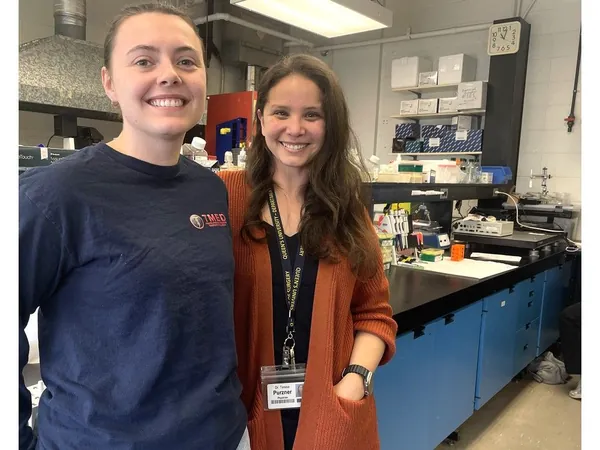
Ontario's Chief Medical Officer Defends Vaccine Exemption Law Amid Measles Resurgence
2025-03-31
Author: Olivia
Ontario's Chief Medical Officer of Health, Dr. Kieran Moore, has firmly stated that the government should maintain existing laws that permit parents to exempt their children from routine vaccinations for philosophical or religious reasons. This stance comes at a critical time as the province faces its most significant measles outbreak in nearly three decades, with public health officials scrambling to manage the situation.
In a recent interview, Dr. Moore emphasized the importance of respecting parental opinions on vaccinations while urging communities to focus on effective communication about vaccination benefits. "We need to communicate effectively, address hesitancy, and remain partners in this outbreak management," he said, addressing the concerns of parents who choose not to immunize their children against diseases such as measles, mumps, rubella, polio, diphtheria, and tetanus.
The outbreak has seen a troubling rise in non-medical exemption requests across various Ontario regions, a trend that has intensified since the onset of the COVID-19 pandemic. A local survey indicated that public health units are experiencing an influx of exemption requests, particularly in areas hardest hit by the measles outbreak, which has traced 572 confirmed cases across 13 health units back to a gathering involving Mennonites in New Brunswick.
Dr. Moore noted that many of the cases are concentrated in the Grand Erie and Southwestern regions, which neighbor Lake Erie and are critical epicenters of the outbreak. To combat vaccine hesitancy specifically among Mennonite communities—many of whom speak Low German—Dr. Moore highlighted the need to leverage local leaders and suitable language for outreach efforts.
In a concerning development, Toronto Public Health confirmed a recent measles case linked to an individual who may have exposed others to the virus in public spaces, including a pizza restaurant and during train travel. As of now, Toronto has reported two measles cases this year, both connected to international exposure.
York Region has reported a dramatic increase in pharmaceutical exemptions during the current school year, with 3,147 documented refusals, which translates to nearly 2% of the student population—an increase from just 1.22% before the pandemic. Other health units indicated that while there may be fluctuations, increases were not as pronounced as in York Region.
Despite stringent measures in place—parents seeking philosophical or religious exemptions must complete an online educational module about vaccines and fill out a formal declaration—the rise in exemptions raises alarms among health officials. Experts warn of potential risks associated with maintaining the exemption policy. Dr. Kumanan Wilson, chief scientific officer at Ottawa's Bruyère Research Institute, cautioned that abolishing the exemption could lead to clustering of unvaccinated children, significantly increasing outbreak risks.
Both Ontario and New Brunswick require students to show proof of vaccination or an exemption to attend school, but the debate surrounding the merit of such exemptions continues as the provinces strive to balance individual freedoms with public health needs amid the measles resurgence.









 Brasil (PT)
Brasil (PT)
 Canada (EN)
Canada (EN)
 Chile (ES)
Chile (ES)
 Česko (CS)
Česko (CS)
 대한민국 (KO)
대한민국 (KO)
 España (ES)
España (ES)
 France (FR)
France (FR)
 Hong Kong (EN)
Hong Kong (EN)
 Italia (IT)
Italia (IT)
 日本 (JA)
日本 (JA)
 Magyarország (HU)
Magyarország (HU)
 Norge (NO)
Norge (NO)
 Polska (PL)
Polska (PL)
 Schweiz (DE)
Schweiz (DE)
 Singapore (EN)
Singapore (EN)
 Sverige (SV)
Sverige (SV)
 Suomi (FI)
Suomi (FI)
 Türkiye (TR)
Türkiye (TR)
 الإمارات العربية المتحدة (AR)
الإمارات العربية المتحدة (AR)